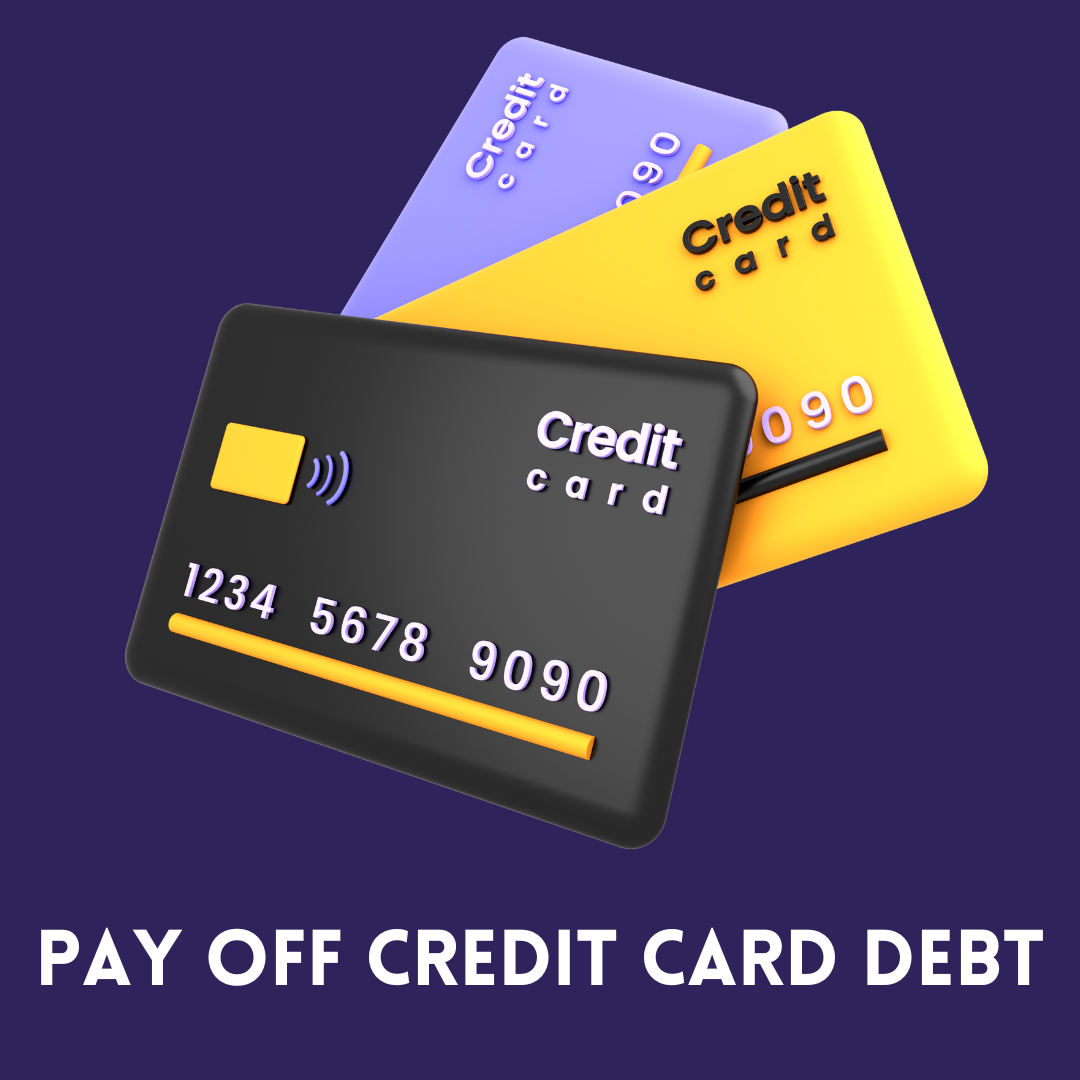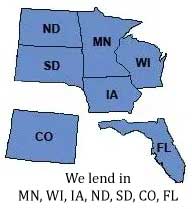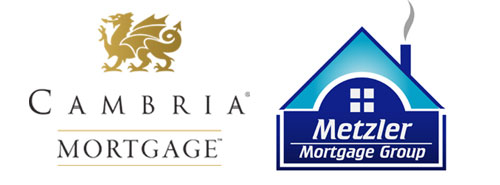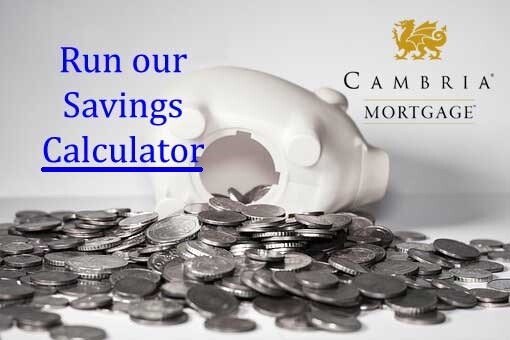-
Share via:
(651) 552-3681
Home Purchase - Home Refinance
Serving MN WI IA ND SD CO FL
- Home
- Reviews
- Apply
- Quick Qualify
- Rates & Costs
- Loan Programs
- Bad Credit Loans
- Buying a House
- Commercial / Apartment
- Doctor Loans
- FHA Loans
- Down Payment Assistance
- First Time Home Buyer
- HomeReady
- Investor DSCR Loans
- Luxury home financing
- Jumbo Loans
- Loans for Self Employed
- New Construction Loans
- No Down Payment Loans
- No Doc / Non-QM
- Refinancing
- Contract for Deed Refi
- Renovation Loans
- USDA Loans
- VA Loans
- Client Resources
- After BK or Foreclosure
- The Home Loan Process
- Daily Mortgage News
- Your credit score
- Student loans
- Homebuyer Classes
- Mortgage FAQ
- Glossary of Mortgage Terms
- Use a Bank or Broker?
- Fixed or ARM
- Home Buyers Guide
- Mortgage Rate Locks
- Long Term Rate Locks
- Mortgage Loan Limits
- No Closing Cost Loans
- Get a Second Opinion
- Tips for a smooth closing
- Top Mortgage Mistakes
- Foreclosures / Short Sales
- How to buy foreclosures
- Well and Septic
- Beware Predatory Lenders
- About
- Blog
- My Acct
Navigation- Home
- Reviews
- Apply
- Quick Qualify
- Rates & Costs
- Loan Programs
- Bad Credit Loans
- Buying a House
- Commercial / Apartment
- Doctor Loans
- FHA Loans
- Down Payment Assistance
- First Time Home Buyer
- HomeReady
- Investor DSCR Loans
- Luxury home financing
- Jumbo Loans
- Loans for Self Employed
- New Construction Loans
- No Down Payment Loans
- No Doc / Non-QM
- Refinancing
- Contract for Deed Refi
- Renovation Loans
- USDA Loans
- VA Loans
- Client Resources
- After BK or Foreclosure
- The Home Loan Process
- Daily Mortgage News
- Your credit score
- Student loans
- Homebuyer Classes
- Mortgage FAQ
- Glossary of Mortgage Terms
- Use a Bank or Broker?
- Fixed or ARM
- Home Buyers Guide
- Mortgage Rate Locks
- Long Term Rate Locks
- Mortgage Loan Limits
- No Closing Cost Loans
- Get a Second Opinion
- Tips for a smooth closing
- Top Mortgage Mistakes
- Foreclosures / Short Sales
- How to buy foreclosures
- Well and Septic
- Beware Predatory Lenders
- About
- Blog
- My Acct
Mortgage Refinance - When and Why
Refinance Your Mortgage and Unlock Potential Savings
Are you considering refinancing your home loan? There are several compelling reasons to do so:
- Lower Your Monthly Payment: Reduce your monthly mortgage costs and free up more cash for other expenses.
- Shorten Your Loan Term: Opt for a 15- or 20-year term to pay off your mortgage faster and save thousands in interest over the life of the loan.
- Extend Your Loan Term: If you need lower monthly payments, consider extending your loan term back to 30 years.
- Access Cash: Use a cash-out refinance to fund home improvements, consolidate debt, or other financial goals.
- Eliminate PMI: If you've built up enough equity in your home, refinancing can help you remove private mortgage insurance (PMI), saving you money each month.
At Cambria Mortgage, we're here to guide you through the refinancing process and help you secure the best possible terms. Our online application makes it easy to get started from the comfort of your home.
Don't miss out on the opportunity to potentially save thousands of dollars on your mortgage. Contact us today to learn more about our refinancing options and get a personalized quote.
Rate and Term Refinance vs. Cash-Out Refinance: Understanding Your Options
When refinancing your mortgage, there are two primary options to consider:
-
Rate and Term Refinance: This type of refinance involves replacing your existing mortgage with a new loan that may offer a lower interest rate and/or a different loan term. You're not borrowing additional funds, and you can roll closing costs into the new loan.
-
Cash-Out Refinance: This option allows you to obtain a new mortgage that not only pays off your existing loan but also provides additional funds. For example, if you currently owe $100,000, you could refinance with a new loan of $200,000, receiving $100,000 in cash. This is also a great way to consolidate existing debt, including second mortgages or home equity lines of credit.
Need help deciding which option is right for you? Contact Cambria Mortgage today for a personalized consultation.
Pay off credit card debt

Paying off your credit card debt can lift a huge burden off of you. Let us help you navigate that successfully
There are many options, and we will educate you on all of them
Understanding Your Mortgage Rate: Key Factors and Options
Several factors influence your mortgage interest rate, including your credit score, loan program (purchase or refinance), property type (investment or owner-occupied), and more. Additionally, you have personal choices to make, such as paying discount points to lower your interest rate or opting for reduced or no lender fees.
Refinance Rates Are Higher
Refinance rates are generally slightly higher than purchase loan rates. Cash-out refinances, where you borrow more than your current loan balance, typically have higher interest rates than rate and term refinances.
Ready to Explore Your Options?
Complete our Quick Quote form for a preliminary estimate, or proceed directly to a full application for a more accurate rate quote. Let Cambria Mortgage help you find the best mortgage solution for your needs.
Wonder what rate you qualify for? Simple complete our Quick Quote form, or better yet, a full application.
Understanding the Refinancing Process: A Comprehensive Guide
Refinancing your mortgage involves applying for a new loan, similar to the process of purchasing a home. While some streamlined refinance options, such as FHA Streamline or VA Streamline, may require less documentation, you'll generally need to provide supporting documents like pay stubs, W-2s, and bank statements.
Closing Costs: A Fact of Refinancing
Just like with a purchase loan, refinancing incurs closing costs. These costs are typically similar to those of a purchase, with a slight reduction in title insurance due to the reissue credit. In some cases, you may avoid appraisal costs by choosing a streamlined refinance option.
Lender Credits, No Origination Fee, or No Closing Cost Loans. Which is Best?
How to Pay Closing Costs
There are several ways to cover closing costs:
- Cash out of pocket: Always best, but very few people choose this option.
- Rolling Closing Costs into the Loan: This is the most common method. The lender adds the closing costs to your new loan amount, increasing your overall new loan amount. For example you owe $200,000 now, and closing costs are $5,000. Your new loan will be $205,000.
- Lender Credits: Lenders can offer 'lender credits' to reduce or eliminate closing costs. However, this this is done in exchange with a higher interest rate.
Click here to get an idea of what closing costs might be
Common Refinancing Options
- FHA Streamline Refinance: A streamlined option for FHA loan holders.
- VA Streamline Refinance: A streamlined option for VA loan holders.
- Cash-Out Refinance: Use this option to borrow additional funds for home improvements, debt consolidation, or other purposes.
- Fixed-Rate Conversion: Convert an adjustable-rate mortgage (ARM) to a fixed-rate mortgage.
- Investment Property Refinancing: Refine your investment property mortgage to potentially lower your monthly payments and increase your cash flow.
Let Us Help You Choose the Right Refinancing Option
With so many refinancing options available, it can be overwhelming to decide which one is best for you. Our experienced team at Cambria Mortgage will guide you through the process, helping you select the refinance that aligns with your financial goals and needs.
Should I Refinance?

Is Refinancing Right for You?
The decision to refinance your home depends on your individual circumstances. While a general rule of thumb suggests refinancing if you can lower your interest rate by 2% or more, even a smaller reduction can make sense depending on your specific situation.
Consider Refinancing if:
- Your Interest Rate is High: If your current interest rate is 1% or higher above current market rates, refinancing could significantly lower your monthly payments.
- You Want to Reduce Your Monthly Payment: Refinancing can help you reduce your monthly mortgage costs, freeing up more money for other expenses.
- You Want to Shorten Your Loan Term: Refinancing to a shorter loan term (e.g., 15 years) can save you thousands in interest over the life of the loan.
- You Need Cash: A cash-out refinance can provide funds for home improvements, debt consolidation, or other financial goals.
Calculating Your Break-Even Point
To determine if refinancing is financially beneficial, it's important to calculate your break-even point. This is the point at which the savings from your lower interest rate offset the closing costs. If you expect to remain in your home for at least the break-even period, refinancing can be a worthwhile investment.
Let Us Help You Decide
Our team at Cambria Mortgage can help you assess your financial situation and determine if refinancing is the right choice for you. We'll provide personalized guidance and help you calculate your potential savings. Contact us today to schedule a consultation.
I regularly see these situations that call for refinancing
- If you have a fixed rate loan and can refinance into a similar term loan at a lower rate, you should refinance. From my perspective: if I can wave my hands at your 30 year fixed rate mortgage and lower the interest rate, then you are foolish not to do it. Some people say: "Yes, but I have been paying on my 30 year loan for 5 years and you want to replace it with another 30 year loan. This is going to cost me more in the long run". This is not correct. You can, in this situation, still pay the loan off in the same 25 years and be making a lower payment on your new loan than your old one. We will calculate the payment necessary to pay it off in 25 years. Plus many times, with the lower rate, and lower payment, although you may go back to a 30 year term, your "total" cost over the life of the loan may still save you money.
- You took out a large Home Equity loan that just keeps going up and up and up.
- You have a 30 year loan, with over 20 years left. Many times we are able to refinance these loans into 15 year terms while leaving the payment very near your 30 year payment. This is an obvious no-brainer, as the amount of money saved typically is in excess of $80,000, plus shaves YEARS off your loan. This is also the most frequent reasons people refinance.
- You would like to pay your loan off as fast as possible
- You have an Adjustable Rate Mortgage that is about to increase in rate but you are not pleased with where fixed rate mortgages are. You should look at a 1 year Treasury ARM and see if you can keep that same index and margin and "roll back" the rate for a year. This is a "no risk' proposition which in essence this gives you a break for exactly 1 year. During this time you should stay in touch with your lender to decide what to do during that year. I do this for a large number of my customers. I also regularly update my customers who have ARM's.
- You have an adjustable (ARM) and your nerves can't take it any more. You simply want the certainty of a fixed rate loan. Here the key is to recognize that fixed rates are "bouncy" and you want to lock your rate at appropriate time. This is 50% skill, 50% luck.
- You have a "balloon loan" that needs to be refinanced. Here, you need to discuss your situation with us. You may want fixed. You may want adjustable. The correct choice of loan depends on the market and most importantly, on your situation.
- You need "cash-out". You may want an equity second or a new first. This depends on the relative size of your first and the cash out. Equity lines issued by direct lenders have low cost but high rate. You again have to discuss your exact situation with us, as we may have some costs, but a better rate.
- You currently have a first and second mortgage. Banks love giving people second mortgages. Unfortunately, many of those people would have been much better off getting a new first mortgage instead. Lot's of people THINK a second would be better for them because their first (for example) might only have 18 years left. I regularly refinance people out of a first & second mortgage into a new first mortgage which saves them $100's each month while still paying off their loan in the time frame they want. Call today. I'll analyze your situation to see if a refinance makes sense for you.
- You took out a 80/20 loan to purchase your home, and now both loans are adjusting. Switching to one low fixed rate loan to stop the ever increasing payments.
WHAT NOT TO DO WHEN REFINANCING YOUR HOME
There are a lot of things "not to do". I will point out only the 3 most common mistakes I see people make.
Setting an unrealistic goal. I always get inquiries from people who say something like, "I have a 30 year fixed rate loan at 5.875% and I will refinance ONLY when rates get to 4.0% with no closing costs". Sometimes I call people back and say, "Why 4%? why not 3% or 2%? They say, "Well rates are not going to go that low". Right and they are unlikely to go to 4% with no closing costs also ("no closing cost" loans typically cost anywhere from 1/2% to 1% higher than the going interest rate)
You should first succumb to the fact that once you can lower your rate with no out of pocket expense, you should probably refinance. Don't draw unrealistic interest rate lines in the sand. They get blown away too easily.
The "Once rates start dropping, they are going to continue to drop, I'm smart and I am going to lock when rates hit the bottom of the market" syndrome is another major problem. It is very hard to guess the interest-rate cycle, and pretty hard to catch the bottom. Remember that interest rates tend to go down slowly, but can rise fairly quickly.
"If the rate goes down just another 1/8th percent, then I'll lock" This one just kills me! I see people lose all the time over this theory. If your current rate is 5.875% and today's rate is 4.50%. LOCK & CLOSE! Most people have what I call "interest rate block". They get a rate stuck in their head, and that is the rate they want, no matter what. Most people fail to realize (and most loan officers fail to show them), that the difference on the average loan over 1/8th a percent is usually less than $15 per month. If you can save $150 per month on your loan at today's rate, why gamble? Why hold out for another $15 when the odds are against you?
Don't get piggy. Work with us. Set a goal and lock when it gets there. Are we going to hit the bottom? Probably not. Are we going to save you money? Yes. If you can save money with no out of pocket costs, than you have nothing to lose. If you want to gamble go to Las Vegas. It's a heck of a lot more fun. Apply Now
OTHER TIPS AND TRICKS TO SAVING MONEY WHEN REFINANCING
The purpose of most refinance loans is simply to save money. The goal is to minimize your expense over the life of the loan or to minimize your monthly payment in the near future.
If you can swing it, don't roll every cost of refinancing into your new loan. Most people escrow for taxes and insurance. If you do, your current lender must give you escrow refund within 30 days of paying off their loan. Your new lender, be it us or someone else, must take the equivalent amount of money (or more) at closing to start the new escrow account.
Remember that you always have no payment due the first month after closing. For example, if you close June 20th, your first new payment is August 1st.
Knowing this, paying some of your closing costs out-of-pocket will save you even more money in the long run. Why roll in $4000 in closing costs, when you really only need to roll in $2000 ($1000 escrow refund + $1000 missed payment = $2000). Paying that $2000 over 30 years doesn't make sense if you don't have too.
On the other hand, some people love the fact that they didn't pay anything out of pocket to refinance, got a nice escrow refund check, then got to miss a mortgage payment. They use the 'extra' money to pay bills, go on vacation, etc.
BEWARE THE SKIP TWO PAYMENTS Tale
Many slimy lenders will tell you that you get to skip two payments if you refinance with them. Sure, if you don't make this months payment, and you automatically don't have a payment due the month after closing, it can feel like you 'skipped" two payments.
The reality is that because you didn't make the current month payment when due, the amount due to pay off the existing loan at closing will be higher, and you'll have a late payment fee. You also risk having a late payment on your credit report if the loan doesn't get paid off in the month the payment was due. So you didn't really save anything, you just juggle the payment from today to the new loan.
You also really are not skipping the second month either, as mortgage interest is paid in arrears. This simply means when you pay of July 1st, you are paying June's interest.
Pro Tip: ALWAYS MAKE YOUR MORTGAGE PAYMENT WHEN DUE, and run away from lenders making the skip two payments claim!
Using Your Current Lender is Usually a Mistake
Shopping for a home loan is confusing. No matter what we're looking for -- from cars to refrigerators' -- there's a built-in element of confusion. Why? Lack of knowledge. An unfortunate rule of thumb is that the less we know about something we need to buy, the more we can expect to pay for it.
Your current lender sounds like a logical choice to refinance. They take advantage of you because they know that many people incorrectly assume because they have your current loan, that somehow they can do it quicker, cheaper, and faster.
You couldn't be more wrong.
There is no short cut to refinance with your current lender. They still need to do everything over, get an appraisal in most cases, and collect the same supporting documents as anyone else. It still needs to go through underwriting, there still are closing costs, title companies, and everything else. Interest rates are based on the mortgage backed securities bond market, and they can't magically give you a better deal.
As a matter of fact, because most people only call the existing lender, you almost never get the most competitive rates - because they don't have to. You just assumed they were good.
They add to this myth because the person on the phone says things like you'll get a Preferred Customer, or Existing Customer Discount. Sounds great, but usually it is meaningless.
Pro Tip: Call your local non-bank lender, or the broker who gave you the original loan if you want the best deal, or even search the term mortgage broker near me.
Refinancing - Apply Online
THE BOTTOM LINE
Remember, the first rule is that there are no rules. You should refinance if it makes sense for you. Every person & situation is different. What makes sense for one family, may not make sense for you. Call me today to discuss your wants, needs, and goals.
Call a Cambria Mortgage loan expert at (651) 552-3681, and together we'll determine if refinancing makes sense for YOU.

Click here for more information on the actual loan process.
Click here for 10 Tips to a Smooth Closing
Click here for 10 Mistakes to Avoid
** EXPERIENCE MATTERS **
Top rated mortgage lender locally and nationally, year after year... This is because clients agree - Experienced Loan Officers with mortgage interest rates you can brag about and amazing service clearly sets us apart from the big banks and online lenders.
Address
1549 Livingston Ave, Suite 105
Saint Paul, MN 55118Contact
Main (651) 552-3681
Joe@JoeMetzler.com
Cell/Text (651) 705-6261We also call from
(651) 615-7545
(952) 486-6135License Info
Cambria Mortgage
NMLS# 322798 Branch:1888858Joe Metzler Loan Officer
NMLS# 274132. License MN #MLO-274132, WI #11418. SD #MLO.03095, ND #NDMLO274132, IA #36175, FL #LO119389, CO #100536785Privacy Policies | Disclaimers | Disclosures | Terms of Use | DMCA Notice | ADA Notice |

Equal Housing Lender. The Joe Metzler Team at Cambria Mortgage lends in Minnesota, Wisconsin, Iowa, North Dakota, South Dakota, Colorado, and Florida only. This is not an offer to lend or to extend credit, nor is this a guaranty of loan approval or commitment to lend. Information here can become out of date, and may no longer be accurate. Products and interest rates are subject to change at any time due to changing market conditions. Not all programs available in all states. Actual rates available to you may vary based upon a number of factors. Consumers must independently verify the accuracy and currency of available mortgage programs. All loan approvals are subject to the borrower(s) satisfying all underwriting guidelines and loan approval conditions and providing an acceptable property, appraisal and title report. Joe Metzler, NMLS 274132, Cambria Mortgage NMLS 322798. © 1998 - 2026.












